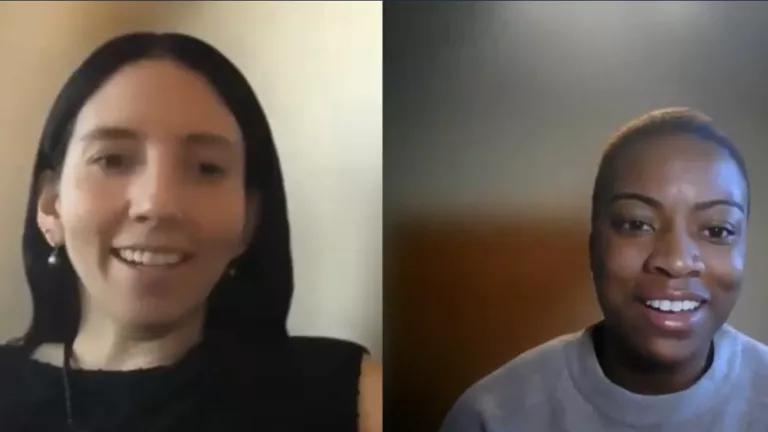Q&A: We Can’t Wait 40-Plus Years for Chicago to Get the Lead Out
The city with the most lead service lines in the nation has been given 40 years—or more—to replace its lead pipes, according to the EPA's Lead and Copper Rule Improvements proposal.

Crystal Vance Guerra and Chakena Perry
Kyler Sumter/NRDC
Chicago’s lead pipe problem isn’t going away anytime soon.
Last month, the U.S. Environmental Protection Agency released its Lead and Copper Rule Improvements proposal that requires almost every state to replace their lead service lines within 10 years. Although this good news calls for a celebration, I reluctantly informed my family members, who reside in Chicago, that they’re an exception to the proposed rule. Chicago, the city with the most lead service lines in the nation, has been given 40 to 50 years—or more—to replace its lead pipes.
When I think about low-income communities of color in Chicago, and the various environmental injustices they are already forced to navigate, it’s unacceptable that generations of children must wait decades for a basic human right like safe drinking water. We can’t wait any longer to get the lead out, and our frontline partners definitely agree. I had the opportunity to sit down with Crystal Vance Guerra, a social justice organizer and mother from the city’s Southeast Side for a powerful conversation on the impact of lead on our hometown. Growing up in her neighborhood, Guerra grew accustomed to discolored water, air pollution, and health issues like asthma and cancer being pervasive in her community. But in 2019, when she received a letter from a hospital revealing that her one-year-old son had elevated levels of lead in his system, it was the first time this issue became real for her.
“Pretty much the only way my child was getting that lead was through me—through the water I was drinking and passing along to him,” Guerra said. “That moment made me feel really guilty, since I knew the history of our neighborhood and didn’t take any precautions. Then to have my son test for elevated levels of lead when he was so young and barely drinking water was a shock to me and is one of reasons I’m now involved in this work.”
Guerra also talked about delving into community activism to make sure her neighbors are informed about these health risks:
“The city of Chicago boasts about having one of the best water systems, best infiltration systems, and cleanest water in the nation and yet, we have kids at one year old in the neighborhood testing for elevated levels of lead. I’m just trying to help [my neighbors] connect, because in my case, I do have that letter that says ‘you have elevated lead levels.’ But for those that might be just below the threshold, they're not going to get that letter, [so] they're still going to drink the water, and that lead concentration builds up within your body. It doesn't go away.
We thought it was really important to start pushing that. And our neighbors have been receptive, even though there's that proud Southeast Side resiliency. People are really starting to realize that everyone has been affected in some way.”



